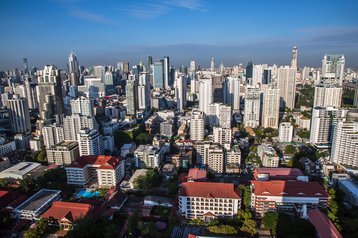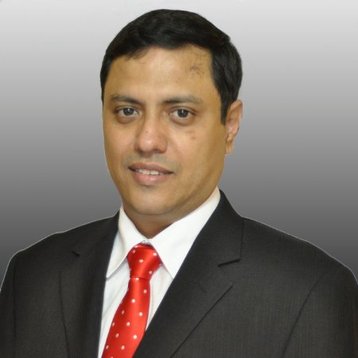With a population approaching 70 million, Thailand is a large country with strong internal demand for data center and cloud services. The growth in the data center space is projected to grow by leaps and bounds, with various sources predicting growth of 25 and 30 percent for this year alone.
Such is the optimism that Nevada-based Switch decided to build its first non-US SuperNAP data center in the country, a joint project that is expected to be completed in the next few months. So how is the data center and cloud landscape in Thailand shaping up this year, and what are some key opportunities in the foreseeable future?
Data centers in Thailand
“The demand for data centers remains strong in the country, with expected growth of 30 percent in 2017 [due to] digital transformation driving demand in data centers and Thailand’s cloud market, which is expected to grow by 30 percent from 2016 to 2019,” said Masatoshi Tsuboi, the deputy VP and COO of strategy, product and service at the data center department of NTT Communications (NTT), which has two data centers in Thailand.
“In general, both private and public cloud, even hybrid cloud needs are gradually increasing in Thailand. We have received lots of opportunities to propose our cloud solution to our customers,” he said.
Voradis Vinyaratn, the executive director and acting managing director at T.C.C. Technology (TCCtech) is similarly optimistic about both data center and cloud demand. He said: “[We see] data center demand growing. Cloud implementations are the other demand driver for companies to look seriously into moving their respective IT platforms into a good commercial data center.”
Another consideration is how Thailand is strategically positioned as the gateway into countries that make up the Greater Mekong Subregion (GMS), many of which share their borders with Thailand. The GMS consists of countries bound together by the Mekong River such as Cambodia, Laos, Myanmar, Thailand, Vietnam and a small part of China.
As we reported earlier, the Mekong region is of special interest to telecommunication and data center operators operating in the region due to the potential of reaching the large industry and population base within the area. As you may expect, there is strong interest to establish Thailand as a data center hub to serve the region.
“The Greater Mekong Sub-region is an area that has evolving economies that will be of great interest to the rest of the world. TCCtech believes that Bangkok is physically and economically the perfect catalyst to help accelerate this growth by being the Indo-China Hub. Thailand’s ‘Digital Economy’ plans is also poised to further energize the GMS,” said Voradis.
The ‘Digital Economy’ is a three-year plan that received the go-ahead from the Thailand cabinet last year, and represents the first phase of the country’s 20-year ‘Digital Thailand’ masterplan with a priority on rural infrastructure.
Masatoshi offers a more cautious view of the GMS. He said: “The size and capacity of the existing data centers in the GMS outside of Thailand is not large compared with Thailand. Power stability is a problem there, [while the] network performance and quality are also not enough to drive the customers migrating to the colocation or cloud. We need to be patient for the GMS markets to be [more] mature.”
Opportunities for growth
There is no question that the Thailand government’s greater emphasis on technology and IT infrastructure will spark greater demand for data centers in the country. Some of this revolves around the establishing of a digital innovation park with the relevant infrastructure and facilities to cater to a new generation of digital businesses.
“[The government] have plans to open a digital innovation park and they have the goal to promoting Thailand as the digital infrastructure hub in ASEAN [Association of Southeast Asian Nations],” explained Masatoshi. “The plan is to offer special incentives for startup companies and global technology companies to invest in Thailand and participate in digital innovation park. From the government policy, we expect more projects will be launched in year 2017 onward.”
People are hardworking, dedicated to their jobs, and serious about delivering. They will come at 7am in the morning for an interview despite the challenging Bangkok traffic. And they are also willing to meet as late as 10 o’clock at night.
Ajay Chakravarty, Datacenter People
Voradis acknowledged that any direct demand stimulus will have a positive impact in the industry, noting that the government proposal to consolidate its data centers via a public-private partnership program did indeed create a positive response. However, he also drew attention to the announcement that initial plans to build national data centers to house the IT systems of government agencies have been scrapped.
“Unfortunately, the implementation of this program has been delayed and there seems to be some uncertainty about its future in the present form. We remain confident that the vision created by the government data center program remains relevant to the data center industry in Thailand. TCCtech looks forward to contributing to its success when this program is reinitiated,” he said.
In terms of challenges facing the Thailand data center market right now, an area for improvement that Voradis highlighted is the relatively small size of the average data center in the country. This is concerning because scaling a data center is not simply a matter of increasing available space, but necessitates the tricky task of simultaneously scaling power and cooling, he noted.
“Bangkok has more than 28 different data center operators but collectively as an industry we deliver less than 500,000 sq ft of white space to the market. Large proportions of these sites are delivering very low [floor area] and low power density per sq feet,” said Voradis.
Hardworking staff
To learn more about the manpower side of the equation, we approached Ajay Chakravarty, the APAC director of data center talent advisory firm Datacenter People. Chakravarty has been shuttling in and out of Thailand over the last couple of years as he helmed efforts to recruit for the country’s first Tier IV data center.
Speaking to DCD by phone, Chakravarty praised the professionalism of the data center workers he talked to, though he had some suggestions to improve operating procedures and skillsets.
“It’s a fantastic country with a great culture. People are hardworking, dedicated to their jobs, and serious about delivering,” said Chakravarty. “They will come at 7am in the morning for an interview despite the challenging Bangkok traffic. And they are also willing to meet as late as 10 o’clock at night.”
On the flip side, he expressed concern about whether adequate training is given to data center professionals in terms of operating a critical facility. Chakravarty emphasized that the technical skills of the workers he has talked to is “very good”, but noted that many could have started their careers in manufacturing environments, and as such are not always cognizant of the difference between a traditional non-critical infrastructure and a critical one.
“When it comes to the SOP (standard operating procedure) and MOP (method of procedure) is concerned, the operating procedures are not as advanced,” he added, suggesting that the incorporating of some risk assessments will benefit the industry. However, the winds of change may be slowly changing.
“The next 12 months will see if any changes can be done, to relook the model, the efficiency, the cost,” he said. “A lot are talking about upgrading the skills of the employees, of upgrading the skills of the data centers engineers.”
Voradis echoed Chakravarty on the need to standardize procedures, though he also pointed to the need to be proficient in English as a communication medium in the data center.
“[One challenge is] internationalizing human resource by creating more standardize operating procedures,” he said. “It is not just about getting the people certified. It is about creating an approach and a framework that enables the business to deliver a customer experience that is good,” he said.
The market is ready for high-tech data centers given the many tech startups there, asserted Chakravarty. He summed up: “Thailand as a market is huge. It has lots of potential. If workers are trained to handle new technologies, in time to come, Thailand can see a boom in the data center industry.”
The 3rd DCD>Thailand event, taking place on 17 February at the Centara Grand Bangkok, will feature Thailand as the Cloud data center gateway to Indochina. Gathering over 300 senior IT professionals, the industry will debate on the best practices and innovations in the design, build, operate and security of IT infrastructure.
Free to attend end-user passes can be claimed before 27 January 2017. For more information, visit: www.dcdconverged.com/conferences/thailand-2017


